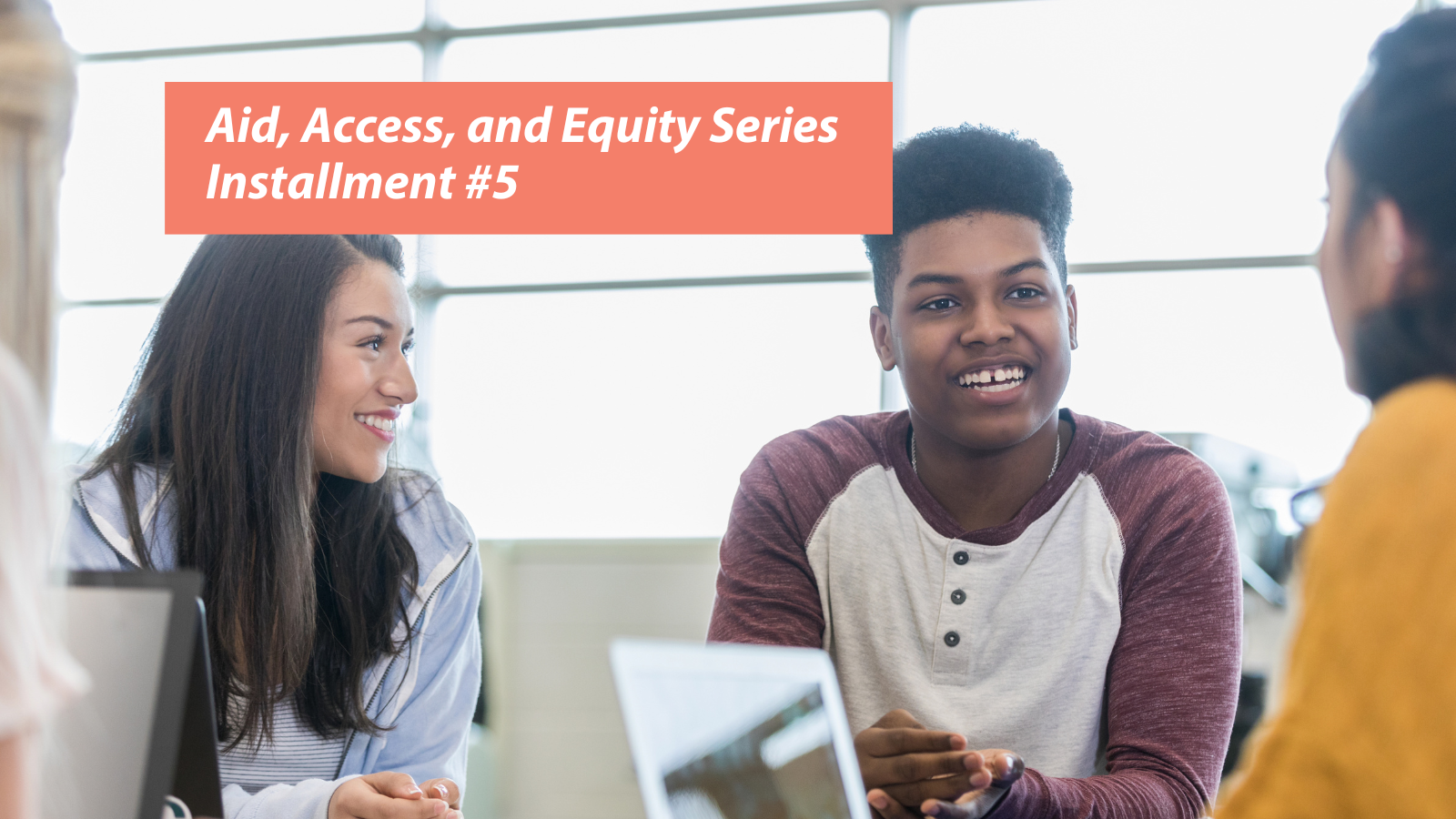Throughout our Equity, Aid, and Access blog series, one theme threads together the inspiring work so many individuals and entities are doing statewide: ensuring students have the right information they need about financial aid. Equipping students with this information can help them make an informed decision for their postsecondary goals.
Doing so takes a coordinated effort between utilizing best practices from schools and partnering with other organizations. When done comprehensively, there is a collective band of community-based organizations, nonprofits, higher education institutions, and the like to support students.
Many of EdTrust-New York’s FAFSA Challenge winners have done just that. Schools bring in financial aid officers from local universities, tax experts from local financial institutions, translators, and nonprofits that specifically focus on college access support for students.
A few examples include Buffalo and Yonkers School Districts. In Buffalo, schools can make use of financial aid teams from the Buffalo FAFSA Completion Project — a partnership between the nonprofit Say Yes Buffalo (Say Yes), the University of Buffalo, and the Buffalo College Success Network (BCSN). Say Yes Buffalo provides in-person support at schools and weekly FAFSA completion reports, while high school students can receive support from university students at BCSN. Similar to Buffalo’s efforts, Yonkers Partners in Education (YPIE) brings trained staff and volunteers to provide financial aid assistance to students at a central location and at various Yonkers high schools.
Students in our discussion groups reiterated that, beyond school and external resources, they themselves are a powerful tool for reaching their peers. The State University of New York, which has 64 campuses around the state, is an example of how to incorporate students to provide peer support. In the 2023-2024 school year, SUNY launched the FAFSA Completion Corps at six campuses. This initiative recognizes the value of peer support by employing college students through AmeriCorps to help high school students complete the FAFSA. College students can enroll while earning work-study and receive a Segal AmeriCorps Education Award at the end of their tenure. This award can be used to help repay loans and education expenses and, in turn, lower the amount of student debt college graduates have.
Students in our discussion groups are supportive of a work-study opportunity to support peers with FAFSA completion. They expressed enthusiasm for this initiative if SUNY were to expand it throughout the state to support Universal FAFSA.
“I want to help others now that I have knowledge about it because I don’t want anybody to go through the same stressful process as me,” said Robert, a college student.
While programs like SUNY FAFSA Completion Corps, Say Yes, YPIE, are vessels for support, not all areas of New York State have access to similar partnerships.
“I wish I had access to things like that,” said Beth, a counselor in the Great Western region, a rural school district. “When you’re in a real rural part of the state, you don’t have access to college representatives. They don’t want to come all the way out to your school during the day.”
While virtual training and support is an option that the New York State Higher Education Services Corporation (HESC) offers (as well as in-person events), students and families can prefer different modalities to access information about the FAFSA. Students may also have differing circumstances where they need targeted support. Organizations like SchoolHouse Connection offer virtual resources for students experiencing homelessness, and the Higher Education Immigration Portal offers in-depth insight for students from mixed-status families.
To further explore the need for support from diverse communities, EdTrust-New York joined a working group with the Governor’s Office. The taskforce includes many key stakeholders for Universal FAFSA implementation, such as HESC, SUNY, CUNY, and many nonprofit and community-based organization partners. This robust and diverse network of support can work to break down silos and address topics we — and many of our partners — have heard from counselors and students.
As we look to the future, EdTrust-New York and our partners will also find opportunities to bring ideas about implementation from counselors and students to life and support with disseminating information about resources that already exist. We will release our updated Financial Aid for High School: College Toolkit this winter, which lists six evidence-based strategies schools can use to support students and shares numerous student- and family-friendly resources from our partners. Moreover, our interactive FAFSA completion tracker data tool also allows schools to track the progress of each New York high school. The tool is updated weekly with new FAFSA completion estimates starting in early 2025. Additionally, EdTrust-New York will continue to share best practices and celebrate the amazing work schools are doing across the state through our New York FAFSA Challenge.
As evidenced, schools do not need to do this alone. We and other non-profit organizations throughout the state are committed to putting policy into practice with a community-centric, equity-driven, student-centered, and data-driven approach.

